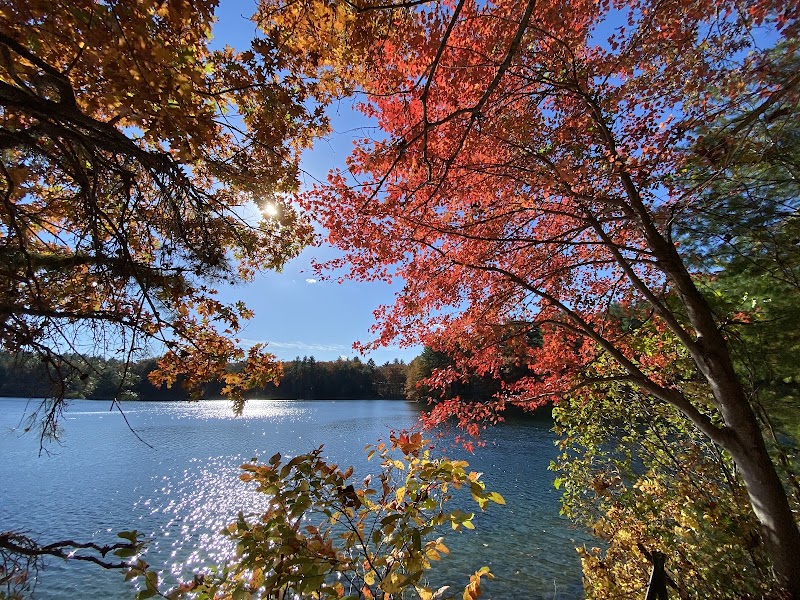
Chasing the Northern Lights Near Boston: Your Guide to an Unforgettable Aurora Adventure
Discover how to catch the elusive Northern Lights just a short journey from Boston. This guide highlights the best tours, timing, and practical tips to experience the Aurora Borealis in New England’s crisp night skies.
Dress in Layered, Warm Clothing
Temperatures can plummet during nighttime tours—wear thermal layers, insulated jackets, hats, and gloves to stay comfortable while waiting under the open sky.
Choose Clear, Moonless Nights
For optimal Northern Lights visibility, plan your trip during nights without cloud cover or moonlight, which can diminish the dazzling colors of the Aurora.
Bring a Reliable Camera and Tripod
Capturing the Northern Lights requires long exposures; a tripod and manual camera settings will help you seize those fleeting moments of magic.
Confirm Tour Cancellation Policies
Northern Lights sightings depend heavily on weather; check cancellation or rescheduling options with your tour provider in case conditions don’t cooperate.
Chasing the Northern Lights Near Boston: Your Guide to an Unforgettable Aurora Adventure
Explore the thrilling opportunity to witness the Northern Lights not far from Boston, Massachusetts. While Boston itself lies southeast of the prime Aurora Borealis zones, carefully planned tours and travel a bit north or northwest open the door to this celestial spectacle. Northern Lights tours near Boston offer a rare chance to experience the ethereal dance of vibrant colors against the dark New England sky, blending accessible travel with natural wonder.
To maximize your chance of seeing the Aurora, focus on tours departing from Boston that head toward northern New England wilderness areas and parts of upstate New York where light pollution fades and the night sky expands. These tours often involve late-evening drives or overnight stays at accommodations specially selected for their clear viewing conditions.
Key factors to consider when booking a Northern Lights experience near Boston include timing, location, and weather. The best time to catch the Aurora in this region falls between late fall and early spring, when longer nights and increased geomagnetic activity align. Many tour operators integrate expert guides, warm gear, and educational narratives, ensuring you’re prepared for the crisp night air and aware of the science behind the spectacle.
Popular keywords to keep in mind: “Northern Lights tour near Boston,” “Aurora Borealis New England,” “Boston Northern Lights viewing,” “Aurora tours Massachusetts,” and “best places to see Northern Lights near Boston.” These terms highlight the regional allure and practical search intent of travelers.
While you’ll start in Boston, expect to traverse scenic routes that push against darkness and weather, embracing the wildness of winter. Whether you’re a winter adventurer or first-time Aurora seeker, these tours balance excitement with grounded logistics, making the elusive Northern Lights a visible and memorable experience.
Below, find a list of nearby outdoor adventures and excursions to extend your time in the Boston area, from hiking to water sports—perfect companions for your Northern Lights journey.
Nearby Trips
All Adventures
Boat Charters
Water Activities
Adventures near Boston, Massachusetts
Discover the unique and memorable adventures that make Boston, Massachusetts special.
Frequently Asked Questions
How close to Boston can I reliably see the Northern Lights?
While Boston itself has significant light pollution, reliable Northern Lights viewing spots are found 2-4 hours north or northwest in New Hampshire, Vermont, or upstate New York, where darker skies prevail.
What time of year offers the best chance to see the Aurora near Boston?
Late fall through early spring (October to April) features the longest nights and strongest geomagnetic activity, ideal for spotting the Aurora.
Are Northern Lights tours suitable for families or beginner adventurers?
Yes, many tours cater to all ages and experience levels, focusing on accessible locations with minimal physical demands but plenty of natural beauty.
What weather conditions can affect my Northern Lights experience?
Cloud cover, light pollution, and moonlight can all obscure Aurora visibility. Cold temperatures require proper clothing but do not reduce chances of seeing the lights.
Can I see wildlife on these Northern Lights tours?
You might catch glimpses of local nocturnal wildlife like owls or foxes, especially in more remote viewing locations.
What should I do if my scheduled tour is canceled due to weather?
Most tour operators offer rescheduling or refunds. Check cancellation policies ahead of booking and consider staying flexible with plans.
Recommended Gear
Insulated Waterproof Boots
Keeps feet dry and warm during nighttime excursions across wet or icy terrain.
Thermal Baselayers
Traps body heat effectively during long hours outside in cold air.
Headlamp with Red Light Mode
Provides hands-free light while preserving night vision for observing the Aurora.
Camera with Manual Settings + Tripod
Necessary for capturing long-exposure photographs of the Northern Lights.
Local Insights
Hidden Gems
- "Wachusett Mountain's summit points for quieter night viewing"
- "Monadnock State Park for dark sky conditions"
- "Quiet lakeside spots in the Berkshires with minimal light pollution"
- "Small towns in Vermont bordering Massachusetts with accessible field sites"
Wildlife
- "Great horned owls active after dusk"
- "Snowshoe hares visible in clearer patches"
- "Deer often paused along forest edges at night"
History
"Northern Lights were historically rare sights for settlers but linked to Native American legends predicting change and survival. Regional folklore still colors local interpretations of the Aurora."